As genetic genealogy continues to rise in popularity, more and more people are engaging in direct-to-consumer DNA testing. (1) For many, it’s exciting to discover details about their ancestral roots, build out an extended family tree, and connect with long-lost relatives. The best part is that you can do it all at home with a simple saliva sample or swab of your cheek, then send it to a lab to be analyzed.
The lab team examines your DNA sample to detect which variants are present across hundreds of thousands of locations throughout your genome. Those variants are then compared to reference populations worldwide to help determine where your ancestors most likely originated. For example, if your DNA shows a variant found in high percentages of South Asians or Africans, you likely have ancestors from that region. (2)
Your final report includes percentages of ancestors from each geographic region identified through the variants. Your results are often compared to millions of others who have taken a DNA test through that company to identify possible familial matches.
“MyHeritage offers DNA testing and genealogy services which can be used to determine your ethnicity and ancestral roots,” according to Dr. Aneesha Dhargalkar, MD. “It does this by testing your autosomal DNA. MyHeritage analyzes the DNA sample provided and then compares it to its extensive database. The resulting data breaks down your ethnicity and background by percentage and also provides interesting information about your ancestral background. This is a great tool for anyone wanting to learn more about who they are and where they come from.”
Each DNA testing company uses proprietary algorithms and reference sets to analyze your sample, provide ethnicity estimates, and connect you with relatives. MyHeritage is one of those and has established itself as a top contender among the best DNA tests and ancestry-tracking platforms. We wanted to test it first-hand so we could share our experience with you and help you make an informed decision about whether it’s worth it.
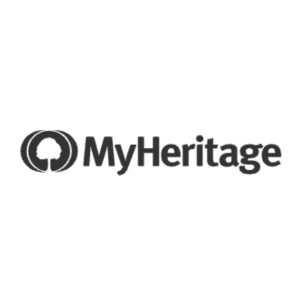

Key product features
What you should know
MyHeritage offers DNA testing and family tree building on its comprehensive web and mobile platforms. It covers over 2,100 geographical regions to help provide you with in-depth, accurate ancestry and ethnicity results.
- Collecting the cheek swab sample is a straightforward process that takes as little as two minutes.
- It’s one of the most affordable kits available, with costs ranging from $39 to $299, depending on sales and your chosen subscription plan.
- You can receive your results within three to four weeks after the lab receives your sample.
- You can create a family tree of up to 250 people on the free Basic plan.
- The platform is available in 42 languages, which increases its accessibility and broadens its database.
What is MyHeritage?
MyHeritage has been a long-standing name in the ancestry and DNA testing space since its founding in 2003. When Gilad Japhet launched the company, it started as a free family tree-building service and has grown and progressed significantly since then. One of its biggest advancements came when it began offering at-home DNA testing in 2016.
MyHeritage collects autosomal DNA through a cheek swab to gather information about your ancestry and ethnicity. That means the DNA collected gives information about both sides of your lineage, maternal and paternal. (3) This is a critical detail since some at-home DNA testing only offers one or the other.
Per Dr. Dhargalkar, “Autosomal DNA testing is the most accurate since it tests both maternal and paternal DNA lines. MyHeritage tests autosomal DNA, which is the gold standard in DNA testing. No matter what DNA testing kit you use, ensure it tests this type of DNA.”
The information gathered from your DNA testing sample is compared to a reference panel to calculate your DNA matches and ethnicity estimates. One of MyHeritage’s biggest highlights is its expansive reach and database, with over 8.5 million in its DNA database and 20.9 billion historical records. Moreover, the platform is offered in 42 languages, which makes it highly accessible to individuals all over the world.
MyHeritage offers various testing kits and subscription options, depending on your goals. You can choose to simply complete the DNA test to discover your origins and find relatives with shared DNA, or you can add a data or site subscription that allows you to access historical records, build your family tree, and utilize different photo editing tools. If you want to take your DNA testing one step further, you can upgrade to receive health results with genetic insight and how that may impact your health. In the sections below, I’ll explain the process, costs, and what you can expect from your results.
Specs
| Price | Starts at $89 |
| Health testing | Optional upgrade for $120 |
| Sample type | Cheek swap |
| Results time | Three to four weeks |
| Results availability | Online or app |
| Trial period | 14 days |
How does MyHeritage work?
How you get started with MyHeritage will depend on whether you want to take the DNA test, build your family tree, or both. Either way, the first thing you’ll see when entering the website is the option to sign up for a free 14-day trial. While you can use the basic family tree-building tools for up to 250 family members for free, we recommend the trial if you want to explore what the full MyHeritage experience offers.
During that time, you can begin creating your family tree by entering names, dates, photos, and stories. You can also access MyHeritage’s database of billions of historical records—marriage licenses, death certificates, newspaper articles, and more. Plus, you’ll receive email notifications with Smart Matches™ and Record Matches showing new possible family tree connections and records about your ancestors, so you don’t have to do all the research manually.
Just be sure to mark your calendar a few days before your free trial ends so you can decide whether you want to continue. If you don’t cancel it before then, you’ll be automatically charged for an entire year’s subscription at $149.
Those interested in taking the DNA test can purchase it from the MyHeritage website or Amazon. The benefit of buying it directly from the website is that you can bundle it with a subscription plan and get your first month free, saving you money if you plan to build an extensive family tree.
After ordering, you should receive your kit within four to seven business days or sooner if you choose express shipping or order from Amazon as a Prime member. Once it arrives, you’ll have everything you need to collect your sample, which only takes about two minutes. Remember that it’s best not to eat, drink, chew gum, or smoke for at least 30 minutes before collecting your DNA sample.
How to take the DNA test:
- Prepare your kit: Open the box and follow the directions to register your kit. You can’t skip this step since this is how the lab correctly identifies your sample. Then, lay out the testing contents to ensure everything is there and easily accessible when you start your test. You’ll find one swab, a small vial, a ziplock bag, and an envelope to return it in.
- Collect your sample: Take the swab from its package and rub it on the inside of one cheek while rotating it for 60 seconds. Next, open the vial and insert the swap, head down. Break off the swab at the line indicator, leaving the top of the swab in the liquid in the vial, and close the vial. This will help preserve your sample in transit to the lab.
- Mail it back: Place both vials in the included ziplock bag. Then put the bag in the mailing envelope to send back to the lab. As a quick note, MyHeritage doesn’t provide pre-paid postage so you’ll be responsible for shipping costs when sending your sample back.
- Review your results: Within about three to four weeks of the lab receiving your sample, you’ll receive an email update when the lab receives your sample and another when your results are ready to view online or in the MyHeritage app.
What does MyHeritage tell you?
Likely, your biggest question is what you’ll learn from this DNA test. Let’s dive into that further now to help you understand what you can expect from your results and how you might use that information.
Ethnicity estimate
When you send your cheek swab sample to the MyHeritage lab, the team extracts your DNA and translates it into biological information. That information is used to calculate which segments of your DNA originate from different ethnicities worldwide—called your Ethnicity Estimate.
Those estimates are given as percentages showing how much of your DNA matches specific reference groups among the 42 ethnicities included in MyHeritage’s database. For example, you may find that your DNA reveals 40% Japanese, 35% Scandinavian, and 25% Irish ancestry.
Beyond the actual data, you can access an interactive map where you can click on each region to learn more about your heritage, how that group has migrated over time, and how that piece of your ancestry may have become integrated into your DNA.
Genetic groups
MyHeritage also categorizes your results into Genetic Groups, which goes beyond ethnicity to show which regions of the world your ancestors originated from out of the 2,114 genetic groups identified through the founder populations. (4) This can help further pinpoint exactly where your ancestors lived and how they might’ve moved around worldwide. Using the example above, where the results indicated 35% Scandinavian, the Genetic Groups can show which countries and potentially even cities your ancestors came from.
DNA matching
If you want to connect with additional relatives, the DNA matching feature may be the most useful. After analyzing your DNA, MyHeritage compares it to that of others who have taken this DNA test or uploaded their results from another DNA testing service. It identifies matches by finding shared sequences within the DNA that may indicate you’re related. Each match shows a confidence rating, presented as a percentage, which indicates the likelihood of you being related to that individual.
MyHeritage also provides a relationship range to help you understand how you might be related to that person, such as a second cousin, half-sibling, or great-grandparent. Higher percentages of DNA matching with another individual in the database mean a closer relationship versus lower percentages.
For each match, you can view their profile to read more information about them and see their photo if they’ve uploaded one. You can contact them by sending a message directly through the platform to connect or learn more about how you might be related. Additionally, you can invite them to be a member of your family site so they can add content, invite others, and view Smart Matches and Record Matches.
Health test
MyHeritage’s DNA testing doesn’t solely focus on the past. You can also opt-in to receive health results to learn more about how your DNA may impact your health now or in the future. You can upgrade anytime after ordering or taking your test. Your results will include the same information as the standard DNA test, plus detailed health reports indicating your genetic risk for developing certain conditions, like heart disease or certain types of cancer. It can also help you understand if you carry genetic diseases that may be passed down to your children.
This can be helpful information, but it’s not a flawless process. MyHeritage’s testing doesn’t cover every gene or potential variant, so some conditions may be missed, and it doesn’t indicate whether you will or will not get certain diseases. (5). Additional testing through bloodwork and imaging may be necessary to diagnose possible conditions. Genetic counseling may also be beneficial if you’re concerned about specific health risks or have a family history of particular conditions.
Fortunately, MyHeritage works with an independent network of physicians who review your health history, indicate whether this test is appropriate for you, and evaluate your results before you receive them. If you have an increased risk for a condition, the physician may recommend scheduling a phone or video consultation with a genetic counselor to discuss it at no additional cost.
“The MyHeritage DNA health upgrade can offer insights into your likelihood of developing various genetic-related conditions, including heart disease, female breast cancer, type 2 diabetes, Parkinson’s, Alzheimer’s, and Crohn’s disease. However, all medical conditions are due to multiple factors, not just genetics. Therefore, any information obtained from this health report should be viewed as only one piece of the puzzle. Before making any healthcare decisions, this data should be reviewed with your medical provider so that all results can be discussed further in the context of your overall health picture.” Dr. Dhargalkar states.
Who is MyHeritage recommended for?
MyHeritage can be a fantastic choice for many who want to explore their genetic heritage further. You may consider signing up for the free trial or purchasing a DNA kit if you can relate to any of the following:
- Family history buff: If you’re enthusiastic about researching your ancestry to learn more about your origins and how your ancestors may have migrated to different regions of the world over time, you may enjoy building an extensive family tree through MyHeritage’s program.
- Connect with relatives: The DNA matching feature is an excellent tool for those wanting to find and connect with distant relatives.
- Curious about ancestry: Maybe connecting with long-lost relatives or creating an elaborate family tree aren’t your goals, but you’re still intrigued by discovering what ethnicities may be contributing to your unique DNA or confirming what has been passed down to you through family history.
- Adoptees: Those who have been adopted may not know much about their biological heritage, and this at-home DNA kit can help answer many of their questions about their genetic background and potential family connections. (6)
- Interested in genetic traits: If you’re interested in discovering if you have specific genes that may impact your health or that of future generations, you could benefit from upgrading to the health results offered by MyHeritage.
Who is MyHeritage not recommended for?
While it can be an incredible tool for many, MyHeritage may not be suitable for others. You may consider an alternative option or skipping at-home DNA testing altogether if you consider yourself part of one of the following groups:
- Under 18 years old: You can purchase the DNA test with a parent or guardian’s consent if you are under 18. However, the Health test is strictly for those 18 and over.
- Prenatal or medical genetic testing: The Health test upgrade can provide valuable information regarding genetic risks. However, at-home testing kits like this aren’t meant to replace in-depth genetic testing performed by medical professionals. They are too limited and can’t provide a diagnosis or treatment plan for any diseases or conditions.
- Bone marrow transplant recipients: Because the donor’s DNA becomes mixed with yours, you should not take the MyHeritage DNA or Health test if you’ve received a bone marrow transplant. Additionally, you should wait at least six months after receiving a blood transfusion or chemotherapy before taking these tests.
- Concerned with privacy: MyHeritage has various security measures in place to protect your information, which we’ll discuss below. Yet, any information stored in an online database is always at risk of being hacked. In fact, MyHeritage experienced a large-scale security breach in 2018 that exposed the usernames and passwords of every member who signed up before October 2017. Fortunately, no other information was leaked, and the company has since implemented additional security protocols to help prevent future incidents. (7)
- Living in restricted locations: Finally, some places are considered “Restricted Locations for DNA Genealogy,” meaning MyHeritage can’t ship DNA tests to individuals residing there. This includes France, Israel, Iran, Libya, Sudan, Somalia, North Korea, Lebanon, Russia, and Syria.
How much does MyHeritage cost?
MyHeritage is one of the most affordable DNA testing kits on the market, and you can customize your experience based on how much information you want access to and how you want to interact with it. If you’re only interested in taking the DNA test, the standard price for the kit is $89, but it’s often on sale for much lower than that. For example, throughout my time evaluating the website and kit, it was offered for only $39 through MyHeritage and $49 through Amazon. However, shipping isn’t free when you order directly through the website, so that will add another $5 to the initial cost. Moreover, you’re responsible for postage to mail your sample back, which will cost a few more dollars.
MyHeritage also offers several subscription plans that allow you to access various tools and resources to help you learn more about your heritage and build a detailed family tree.
- Premium plan: This plan costs $89 for the first year and then $129 annually. It includes a family tree with 2,500 people, Smart Matches™, and priority support.
- PremiumPlus plan: For an annual fee of $209 ($149 for the first year), you get an unlimited-size family tree, Smart Matches™, priority support, Instant Discoveries™, and Search Trees.
- Data plan: This subscription includes a family tree with 250 people, access to historical records and record matches, and priority support. The first year costs $129, and then the price goes up to $189 annually.
- Complete plan: You’ll pay $199 the first year and $299 annually thereafter. This plan includes everything within the PremiumPlus plan plus automatic record matches and access to 20.9 billion historical records.
- Omni plan: Described as the “ultimate package,” this plan includes everything the Complete plan offers and access to historical newspapers on OldNews.com, a Geni.com Pro subscription with over 2,000 webinars, and unlimited photo scanning. It will cost you $239 the first year, then $399 annually afterward.
The Complete plan is the most popular, and if you’re confident you want to enroll in it, we recommend ordering the DNA kit + Complete plan bundle from the start because it will save you $50 on your first year’s subscription.
MyHeritage also offers a free Basic plan if you don’t plan to build an extensive family tree or use the various advanced features offered through the subscriptions. It’s a fantastic starting point for anyone just entering the ancestry space or those not ready or able to commit to annual fees. With that plan, you can create a family tree of up to 250 people, but you won’t have access to historical records, Smart Matches, or the advanced photo features.
Can I keep my MyHeritage information private?
Privacy is a valid concern any time you’re conducting at-home testing and trusting an organization to store your personal results. MyHeritage states that you’re the only one with access to your raw DNA data. That information and all other personal details you share through the website or app are protected by various levels of encryption.
MyHeritage also ensures that your personal data is not sold to or shared with any third parties. The company may ask to use your data anonymously for research purposes, but it will not do so without your consent.
Ultimately, you decide how much information you want to share with others. With that in mind, the company also notes that the platform is meant to be collaborative. It encourages you to share information and communicate with family members to help you connect and learn from each other. We encourage you to read the full privacy policy before creating your account or ordering a kit.
What are the risks of sharing your DNA with MyHeritage?
You can gain incredible knowledge and insight from your results and the connections you make through MyHeritage DNA. Still, we encourage you to consider any potential risks, like the ones outlined below, before deciding if it’s right for you. (8)
Privacy
As we’ve already discussed, you should consider if an at-home DNA test is worth the privacy risk. MyHeritage has a thorough privacy policy and is very transparent about how it protects your personal information. However, because at-home DNA kits aren’t considered medical tests, they’re not subject to HIPAA compliance regulations, and privacy policies can change anytime. You’ll be notified by email about any policy changes and encouraged to review them. Additionally, any online database is at risk of a data breach, as MyHeritage is already familiar with following the 2018 breach it experienced. (7)
The good news for individuals living in the U.S. is that some states are helping protect users by implementing state-level legislation that regulates how direct-to-consumer (DTC) DNA test companies handle the data they collect. A solid example is the Genetic Information Privacy Act put into place in California, which requires companies to obtain consent from customers before using data for scientific research or sharing it with a third party. (9)
Upsetting or unexpected results
There’s always the possibility that your results may uncover a different ancestral background than expected. Since ethnicity and family history can be closely tied to our self-identity, discovering that things aren’t as we thought or have been told may feel upsetting to some. (10) Similarly, discovering unknown relatives or health risks can also feel stressful. If you find yourself in this experience, it may be helpful to seek additional support and talk it through with a mental health professional in person or through an online therapy platform.
Misinterpretation
If you upgrade to the Health test through MyHeritage, it’s also vital to remember that you’re only receiving partial information. We’ve already discussed how the tests can’t cover every gene variant, diagnose diseases, or predict whether you’ll end up with specific conditions. Moreover, genetic results are complicated and may be difficult to interpret without detailed genetic counseling. This may lead some individuals to make important healthcare decisions based on incomplete or misunderstood results.
“Genetic testing cannot determine if you will get or not get a specific medical condition. No one should make life-altering healthcare decisions based on a single test. I advise and strongly encourage anyone using the Health test through MyHeritage to review all results with a medical provider so appropriate decisions and treatments can be initiated if needed.” states Dr. Dhargalkar.
Genetic discrimination
Before sharing your DNA with MyHeritage or any other company, you should consider the possibility of discrimination based on your results. The Genetic Information Nondiscrimination Act of 2008 is critical in protecting Americans against discrimination based on genetic information regarding health insurance and employment. (11) However, that law doesn’t extend beyond that, which means your results could impact your ability to receive life, disability, long-term, or other voluntary insurance.
Our experience with MyHeritage
We’ve tested various at-home DNA testing kits and were excited to see how MyHeritage’s experience compared to others. From the start, one of the things that stood out most was the affordability. For only $39 for the DNA test, it felt like a reasonably risk-free financial decision. Plus, we loved that the two-week trial allowed us to test the entire experience with the family tree-building services for free before committing to a year-long subscription.
Ordering the test kit is simple, and delivery is quick. The box comes with everything you need to take the test, yet it doesn’t feel overwhelming. We found the kit registration process straightforward. Be mindful that you will be asked for family information, like the names of close relatives, which may feel uncomfortable if you’re only interested in your DNA results.
When it comes time to collect the sample, the instructions are incredibly easy to follow, and there’s a video version if you’re a visual learner. MyHeritage says the process only takes two minutes, and we found it’s truly that quick. The swabbing is simple, and we appreciate not having to worry about getting enough for the sample, like we’ve experienced with saliva samples required by other tests.
After sending the test back to the lab, MyHeritage is excellent at communicating updates to see when your sample is received and when you can expect the results. We’re also quite impressed with how quickly the results become available. It’s normal to wait up to eight weeks for these tests, but this one is ready in half that time.
The ethnicity estimate helps get a broad overview of your heritage, and the additional information provided by the genetic groups is valuable for getting more specific about precisely where your ancestors came from. While reviewing other users’ experiences, we found many find this all very helpful, while others feel it’s still too vague.
I wasn’t particularly interested in the DNA matching portion since I am close to my immediate and extended family and already familiar with my family history. However, I can understand how useful this can be for others who want to connect with more relatives. Yet, the thousands of DNA matches MyHeritage gives can also feel overwhelming. Expect to spend some time sorting through them to find your closest matches.
Another sticky point we experienced while evaluating MyHeritage was the Health kit upgrade. It’s not apparent anywhere on the website that you even have the option to get health results. I stumbled upon it when searching the health center for other questions. Even then, I couldn’t figure out how to get to that option. The information seems outdated because the instructions indicate that you order a separate kit, which isn’t available. Instead, I had to contact customer service to help me understand if that option was still available. They informed me that upgrading to the health kit happens after you’ve ordered the DNA kit or anytime after getting your DNA results.
As a new customer who hadn’t yet signed up for a subscription, the customer service wasn’t the best I’ve experienced either. First, you have to engage with a chatbot, and if that can’t answer your questions, then you must submit a ticket through email. Responses came about 24 to 48 hours later. On a positive note, subscription plans come with priority customer support, and I saw many positive reviews from users praising how helpful the support team is.
Overall, we were happy with our experience with MyHeritage. With its roots in family tree building and the advanced features offered throughout that section, it seems more focused on building your heritage and connecting with relatives. If those are your goals, then we think this DNA testing service would be a fantastic fit.
Our at-home testing methodology
Throughout our MyHeritage review, we evaluated various factors that impact user experience. We started with the basics of how much the kit costs, how easy it is to order the test, and how quickly the results come back. Then, we went deeper into the process, analyzing how valuable and accurate the information felt and how extensive the DNA database is for pulling matches. Privacy policies and security are other critical areas we reviewed to ensure the safety of shared personal information. Our ultimate goal is to provide an honest, balanced review to help you decide whether MyHeritage is right for you. You can see our full at-home testing methodology here.
Accuracy and reliability—40%
Accurate test results are the most important element of at-home testing kits, as they form the basis for the user’s health decisions. Whether you’re exploring your genetic background, tracking fertility cycles, or identifying food sensitivities, the integrity of the data provided by these tests is crucial. Reliable results help users confidently make informed decisions for personal health management or discussions with their healthcare provider.
Here’s what we look for:
- Measurement precision
- Consistency
- Environmental influence
- Sample integrity
Ease of use and accessibility—30%
The ease of use and accessibility of at-home testing kits determine how effectively individuals can utilize these products. A testing kit may offer the most advanced technology and accurate results, but its benefits are significantly diminished if it’s not user-friendly. Ensuring that these kits are accessible and easy to use empowers a broad range of users, including those who may not have prior experience with medical testing or technology. This enhances the likelihood of correct usage, accurate sample collection, and reliable results, ultimately improving the overall experience and satisfaction. We evaluate:
- Instruction clarity
- Sample collection process
- Online platform usability
- Support resources
- Accessibility features
Value—20%
Evaluating the value of at-home testing kits is critical, encompassing the initial purchase price, long-term financial implications, and overall cost-effectiveness. A high-value kit delivers reliable results without imposing excessive costs over time, so users can receive meaningful health benefits for their investment.
We evaluate:
- Cost of the kit
- Insurance coverage
- Long-term cost analysis
- Warranty
Customer experience—10%
A positive customer experience helps users feel supported, informed, and satisfied at every stage of their interaction with the kit. This category considers multiple touchpoints, including customer service, delivery and packaging, user feedback, and return policies. By prioritizing customer experience, we aim to recommend products that not only meet technical and performance standards but also provide a seamless and supportive user experience.
Our factors in this rating include:
- Customer service
- Delivery and packaging
- User feedback and reviews
- Return policy
Compare MyHeritage with other DNA testing kits
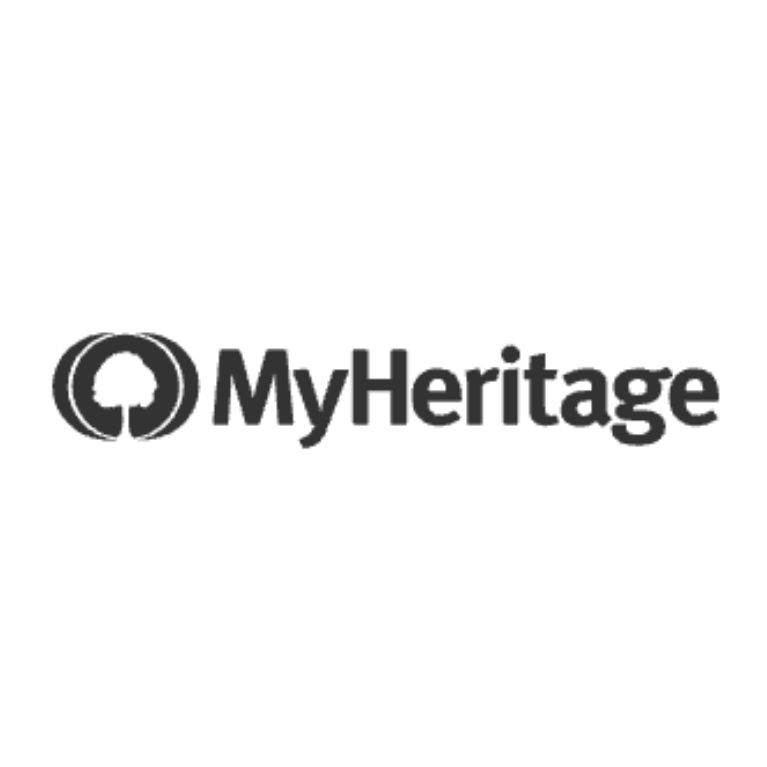
|
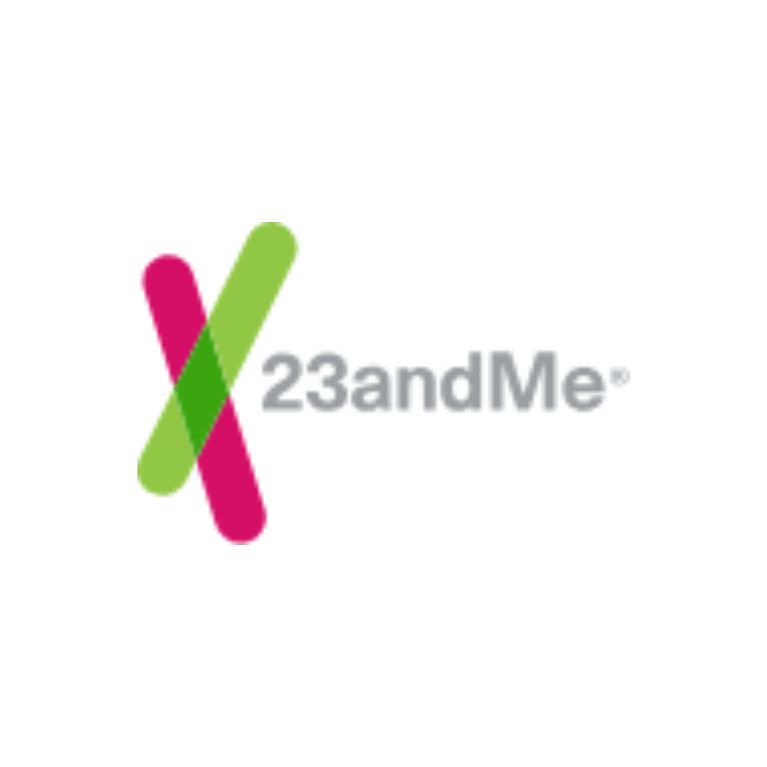
|
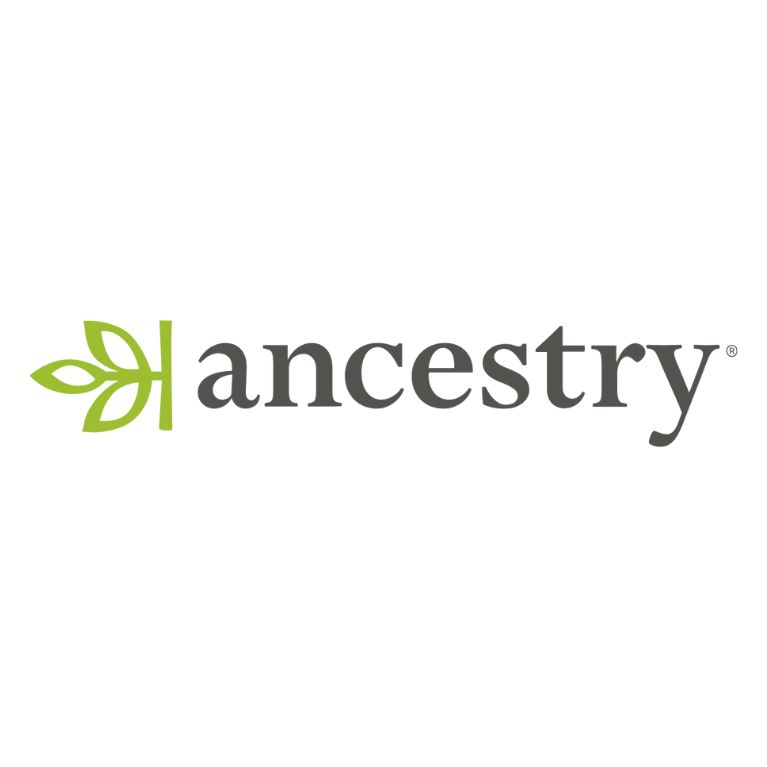
|
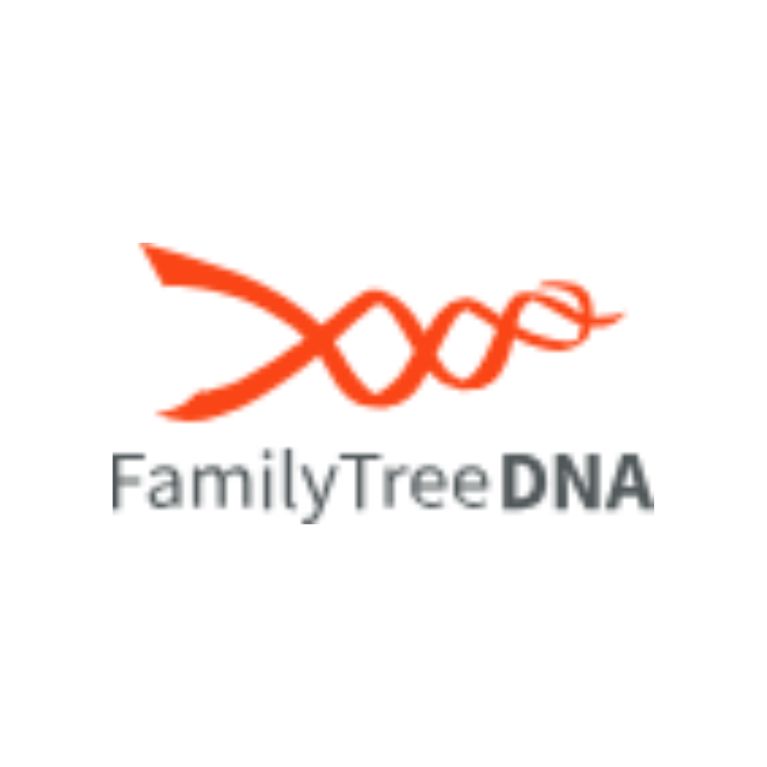
|
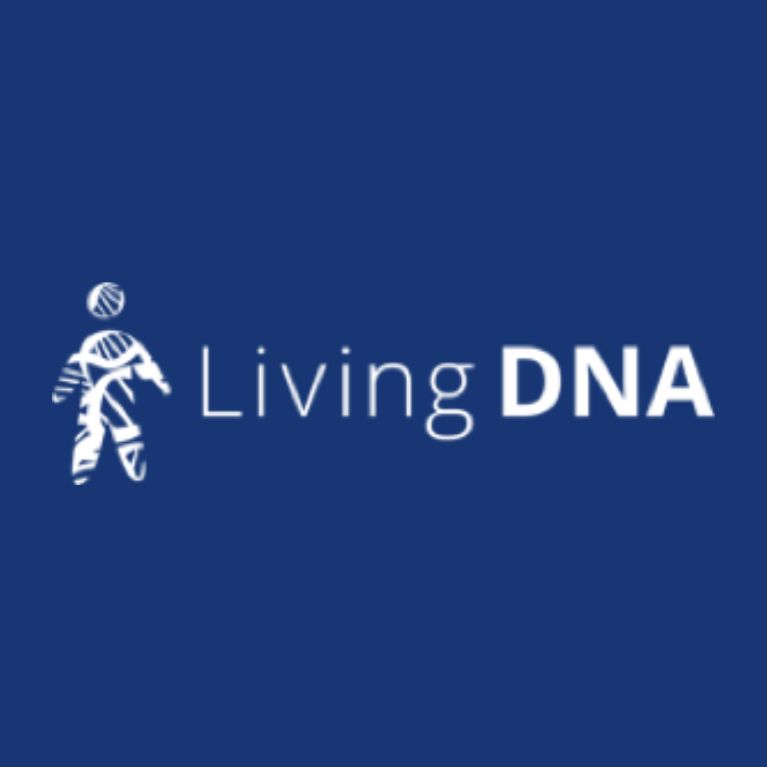
|
|
| MyHeritage | 23andMe | Ancestry | Family Tree DNA | Living DNA | |
| Rating | |||||
| Price | $89-$299 | $119-$999 | $99-$199 | $79-$449 | $124-$225 |
| Wait time | $89-$299 | 4-6 weeks | 6-8 weeks | 2-8 weeks | 6-8 weeks |
| Collection method | Cheek swab | Saliva | Saliva | Cheek swab | Cheek swab |
FAQs
Is MyHeritage accurate?
MyHeritage uses a CLIA-certified lab, advanced algorithms, and an extensive worldwide reference database to help generate highly accurate results. (12) However, the results are still estimates, and each DNA testing company uses its own algorithm and reference sets, so you may find differences in your results if you take multiple. It’s also important to note that autosomal DNA is most accurate at identifying close relatives, which is considered within five to seven generations. After that, it becomes increasingly diluted and difficult to pinpoint exact relationships. (3)
Is MyHeritage safe?
MyHeritage takes privacy very seriously and has pledged to never sell your personal information to third parties. You are in complete control of how much you share, and you can adjust your privacy settings at any time in your member profile. Unfortunately, even with multiple layers of encryption, data breaches can happen when storing information online. Before taking the DNA test and sharing personal information on the website, you should consider all risks.
Our experts
Dr. Aneesha Dhargalkar
Dr. Aneesha Dhargalkar is a board-certified emergency medicine physician currently practicing in West Chester, PA. She graduated cum laude from John Hopkins University in 2002 and from Jefferson Medical College in 2006. After this, Dr. Dhargalkar attended and completed a three-year residency program in emergency medicine at Temple University Health System. Dr. Dhargalkar is the director of her hospital’s wellness provider program and sits on the executive board of both the Chester County Suicide Prevention Task Force and the Unionville Chadds Ford School District Education Foundation.
Heather Morsellino
Heather Morsellino is a freelance writer and fact-checker with over four years of experience in healthcare. She has worked as a pharmacy technician, emergency room medical scribe, and anesthesia technician in the operating room and will finish her ADN within the following year.

Corey Jungwirth, NBHWC
Fortune Recommends Staff Writer
About Author
Sources
- Jorde, L. B., & Bamshad, M. J. (2020). Genetic ancestry testing. JAMA, 323(11), 1089. https://doi.org/10.1001/jama.2020.0517
- How do companies measure DNA to discover your ancestry? | NIST. (2022, October 20). NIST. https://www.nist.gov/how-do-you-measure-it/how-do-companies-measure-dna-discover-your-ancestry
- Research guides: Genetic Genealogy: DNA and Family History: Introduction. (n.d.). https://guides.loc.gov/genetic-genealogy
- MyHeritage DNA Founder Populations Project – Jungwirth Web Site – MyHeritage. (n.d.). MyHeritage. https://www.myheritage.com/dna/founder-populations/1666815734
- What are the benefits and risks of direct-to-consumer genetic testing?: MedlinePlus Genetics. (n.d.). https://medlineplus.gov/genetics/understanding/dtcgenetictesting/dtcrisksbenefits/
- National Council for Adoption. (2024, September 10). Genetic testing for Adoptees: Key considerations and benefits. https://adoptioncouncil.org/publications/genetic-testing-for-adoptees-key-considerations-and-benefits/
- Admin. (2021, September 12). MyHeritage statement about a cybersecurity incident. MyHeritage Blog. https://blog.myheritage.com/2018/06/myheritage-statement-about-a-cybersecurity-incident/
- Majumder, M. A., Guerrini, C. J., & McGuire, A. L. (2021). Direct-to-Consumer genetic testing: value and risk. Annual Review of Medicine, 72(1), 151–166. https://doi.org/10.1146/annurev-med-070119-114727
- Bill Text – SB-41 Privacy: genetic testing companies. (n.d.). https://leginfo.legislature.ca.gov/faces/billTextClient.xhtml?bill_id=202120220SB41
- Woo, B., Fan, W., Tran, T. V., & Takeuchi, D. T. (2019). The role of racial/ethnic identity in the association between racial discrimination and psychiatric disorders: A buffer or exacerbator? SSM – Population Health, 7, 100378. https://doi.org/10.1016/j.ssmph.2019.100378
- Genetic discrimination. (n.d.). Genome.gov. https://www.genome.gov/about-genomics/policy-issues/Genetic-Discrimination
- Clinical Laboratory Improvement Amendments (CLIA) | CDC. (n.d.). https://www.cdc.gov/clia/index.html
